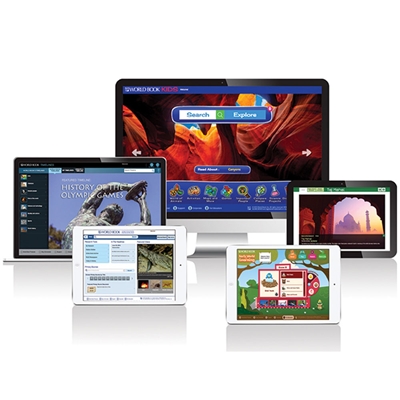This ancient Greek painting shows the bearded Odysseus giving the armor of Achilles to Achilles’s warrior son Neoptolemus. Credit: Red-figure painting on a cup (about 490 B.C.) by Douris; Kunsthistorisches Museum, Vienna (Interfoto Pressebildagentur/Alamy Images)
Odysseus was a famous king of Ithaca and a brave and cunning hero in Greek mythology. His name is Odysseus in Greek and Ulysses in Latin. Odysseus was especially noted for his cleverness. In early Greek writings, he also was generous and noble. Odysseus lived through some hard times, however, and his travails liven the pages of two of the greatest works of ancient literature, the Iliad and the Odyssey.
The Iliad and the Odyssey, both by the Greek poet Homer, describe events during and after the Trojan War, a conflict between Greece and the city of Troy. The Iliad tells of the last year of the Trojan War. The Odyssey recounts Odysseus’s adventures as he returns home after the war.
During his trip home to Ithaca—the ten-year journey described in the Odyssey—Odysseus and his shipmates endured many trials and tribulations as they sailed from island to island. Relying on the resourcefulness and cunning of Odysseus, they navigated troubles with such legendary mythological figures as the daydreaming lotus-eaters, the one-eyed Cyclopes, the cannibalistic Laestrygones, beguiling Circe, the enchanting Sirens, the sea monsters Scylla and Charybdis, and the sea nymph Calypso—all while dealing with the wrath of angry gods and stormy seas. There are many reasons why the Odyssey is such good reading!
Odysseus finally made it back to Ithaca, but he had been gone so long he was given up for dead. He found his long-suffering wife, Penelope, at the center of a competition for her hand in marriage. Furious, Odysseusentered the contest—a feat of strength and archery prowess—in disguise. Odysseus won the competition, revealed his identity, and slaughtered the other contestants. At long last reunited with his wife, an exhausted Odysseus resumed his rightful place on the throne of Ithaca.
Untitled Document Can't view the linked articles? Subscribe to World Book Online

World Book Online delivers a progressive sequence of core databases supported by supplemental
tools, such as language translation, graphic organizers, and unique Webquests. Moving from
Early World of Learning to World Book Advanced, World Book Online aligns end-users with their
appropriate learning levels. Each stand-alone site provides additional features to support the
needs of users’ specific capabilities.
The World Book Difference
World Book combines cutting-edge technology with traditional editorial excellence to produce
authoritative, trustworthy, and unbiased content. The digital content is updated in real time and
carefully curated for each learning level. Accessible 24/7, the content is available on a variety of devices.
World Book Online combines 21st-century instructional techniques with timely information.
By breaking down complex topics and using easily understandable text, World Book Online helps to
build fluency and increase comprehension. Featuring single sign-on capability, these sites are paired
with highly visual content to engage even the most reluctant reader. Our collection of resources kindles
a lifelong learning experience for every user. This adherence to clarity, currency, and accuracy makes
World Book’s digital offerings an information hub for the classroom, library, and beyond.
|